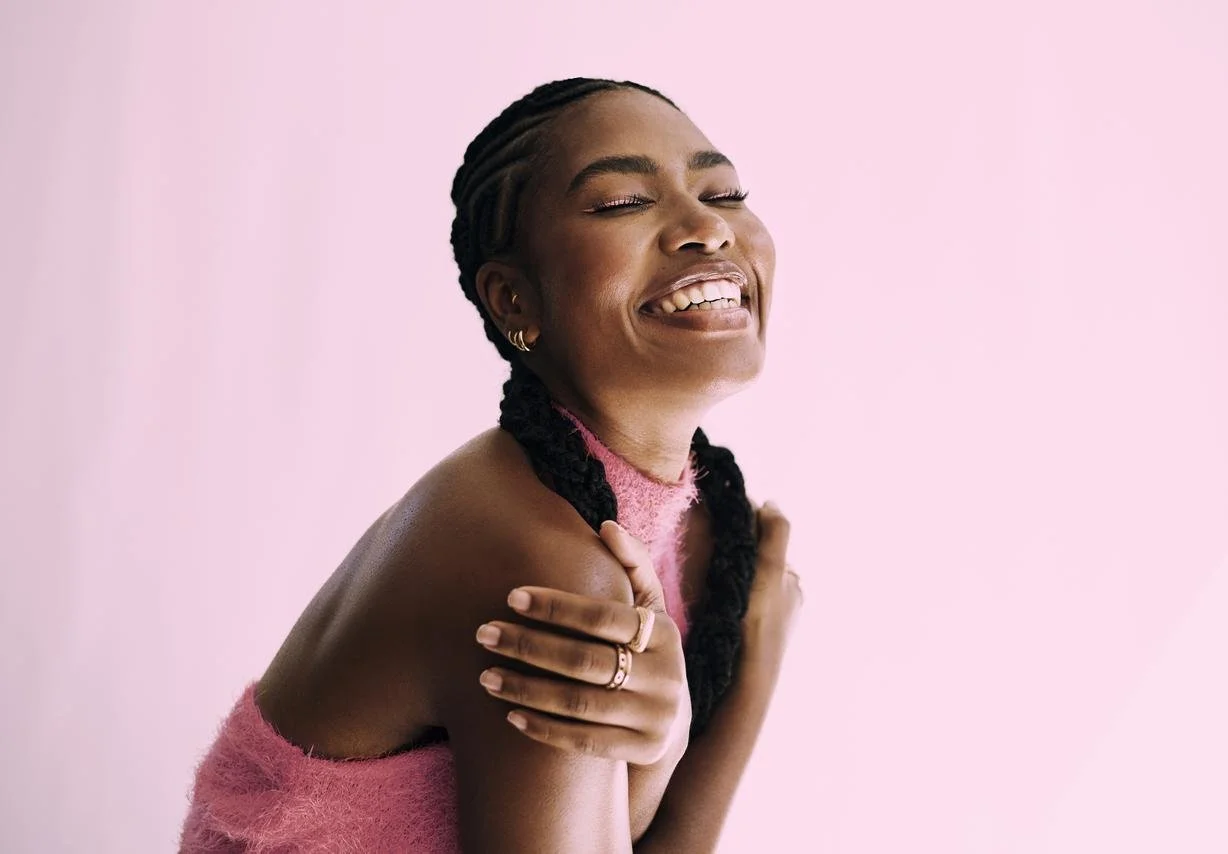How Self-Love Shapes Romantic Love in the Black Community
Prioritizing self-love in the Black community fosters healthier relationships by addressing generational trauma, promoting self-worth, and strengthening the foundation for authentic and resilient Black love. We discuss it here!
Photo Credit: Delmaine Donson via iStockPhoto.com
By: Jamila Gomez
Self-love is a profound foundation for healthy relationships, especially within the Black community, where historical challenges and systemic oppression have created unique barriers to both individual and collective healing. When individuals prioritize self-love, they cultivate an internal sense of worth and resilience, which profoundly influences their ability to give and receive love in romantic relationships.
For centuries, Black love has served as a radical act of defiance and survival, preserving joy and connection despite external adversities. However, self-love—a deeply personal and transformative practice—strengthens this legacy by fostering emotional well-being and breaking cycles of generational trauma. When Black individuals embrace self-love, they affirm that they are deserving of compassion, respect, and care—cornerstones of any healthy romantic partnership.
One of the ways self-love manifests in romantic relationships is through boundary-setting. Often, societal stereotypes and systemic inequities have pressured Black individuals to overextend themselves emotionally and physically, sometimes leading to unhealthy dynamics in relationships. When self-love is prioritized, individuals are more likely to establish boundaries that protect their mental and emotional health. In turn, this creates space for equitable and respectful romantic connections, where both partners feel seen and valued.
Moreover, self-love helps dismantle harmful patterns shaped by internalized racism, colorism, and negative self-perception. Within the Black community, unlearning these societal impositions is an act of self-care that directly impacts how individuals choose partners and navigate intimacy. When people accept their full selves—embracing their unique beauty, culture, and experiences—they are more likely to attract relationships rooted in authenticity and mutual respect.
Black love thrives when it emerges from a place of wholeness, rather than seeking completion in another person. Couples who prioritize self-love individually often bring emotional stability and self-awareness into their partnerships. This not only deepens their connection but also sets an example for future generations, emphasizing that love starts within.
In the Black community, self-love is not just a personal journey—it’s a communal one. By prioritizing self-care, self-respect, and self-acceptance, individuals contribute to a collective healing process that uplifts relationships and challenges narratives of unworthiness. Ultimately, self-love nurtures romantic love, empowering Black couples to build lasting, fulfilling connections that reflect the strength and beauty of their shared heritage.
YOU MAY ALSO BE INTERESTED IN:
SHARE TO SOCIAL MEDIA
Therapy in Black Relationships: Breaking Stigmas Around Mental Health and Love
Therapy is helping Black couples break cultural stigmas, heal generational wounds, and build stronger, healthier relationships rooted in love and understanding. We discuss it here!
Photo Credit: Prostock-Studio via iStockPhoto.com
By: Jamila Gomez
In Black communities, mental health conversations have often been overshadowed by cultural stigmas, societal pressures, and generational trauma. When it comes to Black relationships, these barriers can create cycles of misunderstanding, unhealed wounds, and emotional disconnection. However, therapy is increasingly being embraced as a tool to strengthen love, foster communication, and heal both individually and collectively.
For decades, therapy has been stigmatized in Black communities, often perceived as a sign of weakness or something only “crazy” people pursue. This misconception has been compounded by systemic racism within the mental health field, a lack of culturally competent therapists, and the idea that faith or family should be enough to address emotional struggles. These attitudes often find their way into relationships, where vulnerability is seen as a liability rather than a strength. Many couples internalize pain, resort to silence, or repeat unhealthy patterns they’ve inherited, leading to fractured relationships.
However, as conversations about mental health become more mainstream, Black couples are beginning to see therapy as a powerful resource for cultivating healthy, lasting love. Therapy provides a safe space to unpack individual traumas and explore how these impact the dynamics of a relationship. For example, a partner who grew up in a household where emotions were suppressed might struggle to communicate their needs, while the other may feel neglected or misunderstood. A therapist can help couples identify these patterns, develop empathy, and practice new ways of relating to one another.
Importantly, therapy doesn’t mean a relationship is broken. Many Black couples are using therapy proactively, not as a last resort. Premarital counseling, for instance, allows partners to align on values, expectations, and conflict resolution strategies before problems arise. Others turn to therapy to heal from specific challenges, like infidelity, financial strain, or unresolved grief.
The rise of Black therapists and culturally sensitive approaches to mental health care has also played a key role in breaking these stigmas. Black couples now have greater access to professionals who understand the nuances of their experiences, including racism, cultural identity, and the intergenerational effects of systemic oppression.
Ultimately, therapy is an act of love—for self and for each other. By normalizing seeking help, Black couples can break cycles of pain and create a legacy of healthy, resilient love. Healing together is not only possible but revolutionary.









